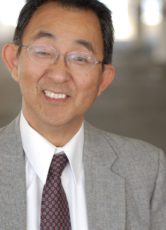
Can a desire for too much attention hurt an actor’s creativity? Joseph Gordon-Levitt believes it can. He should know; he lived through it. In his TED Talk “How craving attention makes you less creative,” the 39-year-old actor shares with refreshing honesty how an addiction to social media exacerbated his insecurities and took a toll on his artistic expression.
Gordon-Levitt has enjoyed a life in the spotlight since his childhood with acting appearances in films like A River Runs Through It, Angels in the Outfield, and 10 Things I Hate About You, but many people think of him as Tommy Solomon from the TV series 3rd Rock from the Sun. As an adult, he starred in The Dark Knight Rises, Lincoln, and Snowden, and he’s twice been nominated for a Golden Globe Award for leading performances in (500) Days of Summer and 50/50. In other words, he’s been consistently showered with attention for decades thanks to his impressive work as an actor.
And performing brings him a tremendous sense of joy. “When I’m acting, I get so focused that I’m only paying attention to one thing,” he says. “Anything else that might be bothering me or might grab my attention—it all goes away, and I’m just there. And that feeling, that is what I love. That, to me, is creativity, and that’s the biggest reason I’m so grateful I get to be an actor.”
But when Gordon-Levitt started using Twitter, he admits he became addicted to the social media platform. Like so many people across the globe, he fell into a bottomless pit of attention-seeking behaviors, always on a quest for the rush of power he felt with each new follower he gained. Instead of placing his efforts on paying attention to others and his work, he found himself seeking attention via the Internet.
Indeed, he noticed he was prioritizing his tweets over his creativity. Gordon-Levitt shares his thought process—and it will sound familiar to many people who use Twitter, YouTube, Facebook, Instagram, or Snapchat—saying: “I’ll be sitting there reading a script and instead of thinking, ‘How can I personally identify with this character?’ or ‘How is the audience going to relate to this story?’ I’m like, ‘What are people going to say about this movie on Twitter? And what will I say back that will be good and snarky enough to get a lot of retweets that are not too harsh because people love to get offended, and I don’t want to get canceled?’ These are the thoughts that entered my mind. I’m supposed to be reading a script, trying to be an artist.”
The culprits, he argues, are today’s oversized social media companies who prey on their users’ desire for attention in order to profit from advertisers. Getting users addicted to attention is built into their business model. Despite having 4.2 million Twitter followers, almost six million followers on Facebook, and 986 thousand Instagram followers, the actor says, “In my experience, the more I go after that powerful feeling of ‘paying’ attention, the happier I am. But the more I go after the powerful feeling of ‘getting’ attention, the unhappier I am.” After all, there’s always going to be someone who’s more popular on social media, and no amount of attention will ever really be enough.
But Gordon-Levitt has found a solution to keep his mind focused on his creativity, his acting, and his joy. “When I’m acting in a scene, if I start seeing the other actors as my competitors, and I’m like, ‘OMG, they’re going to get more attention than I am, people are going to be talking about their performance more than my performance,’ it’s like I’ve lost my focus. And by the way, I’m probably going to suck in that scene. But when I see the other actors as collaborators, then it becomes almost easy to focus, because I’m just paying attention to them. And I don’t have to think about what I’m doing; I react to what they’re doing, and they react to what I’m doing, and we can keep each other in it together.”
With all the benefits of social media—meeting others with similar interests, displaying your talents, networking, and sharing photos with loved ones—it’s important to recognize there can be a dark side to using it. Perhaps Joseph Gordon-Levitt’s story will help others pay closer attention to the way they approach the various social media platforms.
Want to get your acting career started? Sign up or login to Casting Frontier and start auditioning today!
Related articles:
Eddie Murphy Had Only One Audition
4 Tips to Stand Out in Auditions When You’re New
How to Create a Great Self-Tape Audition




